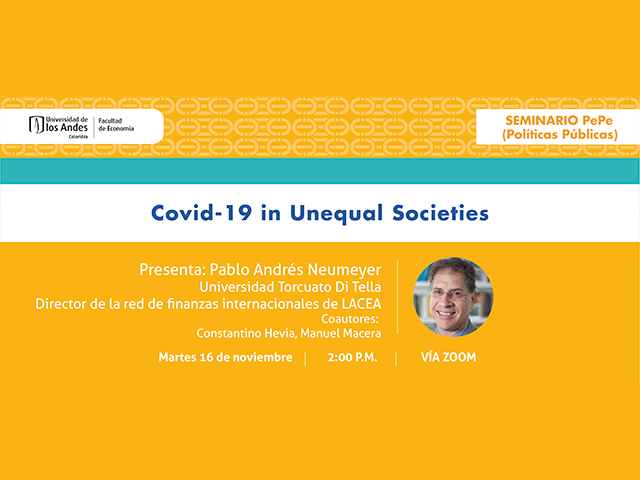Seminario PePe (políticas públicas) - Pablo Andrés Neumeyer

We document the heterogeneous effect of covid-19 on health and economic outcomesin Bogot ́a and develop a quantitative dynamic general equilibrium model intertwinedwith a behavioral epidemiological model where society is divided in two groups. Peoplein high/low socioeconomic strata (SES) have a higher/lower human capital, have/notaccess to financial markets and lower/higher contact rates to shop, work, and sociallyinteract. We assess the distributional consequences of covid-19 and evaluate policiesthat restrict economic activity and re-distribute income. Restrictions on economicactivity reduce social welfare and have modest public health benefits. Re-distributivepolicies improve social welfare despite contracting economic activity and worseninghealth outcomes. In some cases, redistributive policies induce Pareto improvementsin social welfare. The positive predictions of the model are consistent with observedmacroeconomic aggregates and with epidemiological outcomes across social groups. InBogot ́a, a year into de epidemic, the prevalence ratio is two, infection fatality ratesare similar across social groups, and more disadvantaged people have a 50% higherexposure to contagion. In the model, the elasticity of consumption with respect tosocial distancing along an indifference curve at the peak of the epidemic is 2%. Thebenchmark welfare cost of the pandemic is 0.1% of steady state consumption for peoplein low SES and 1.22% for people in high SES.

